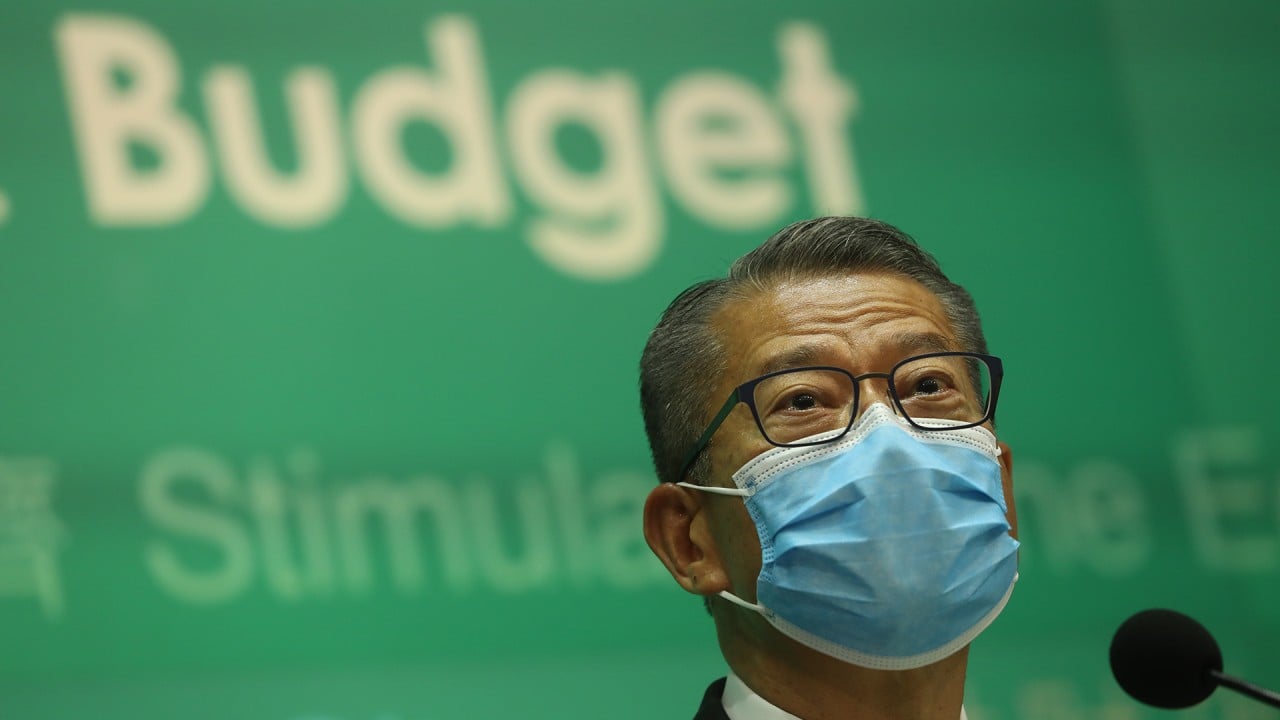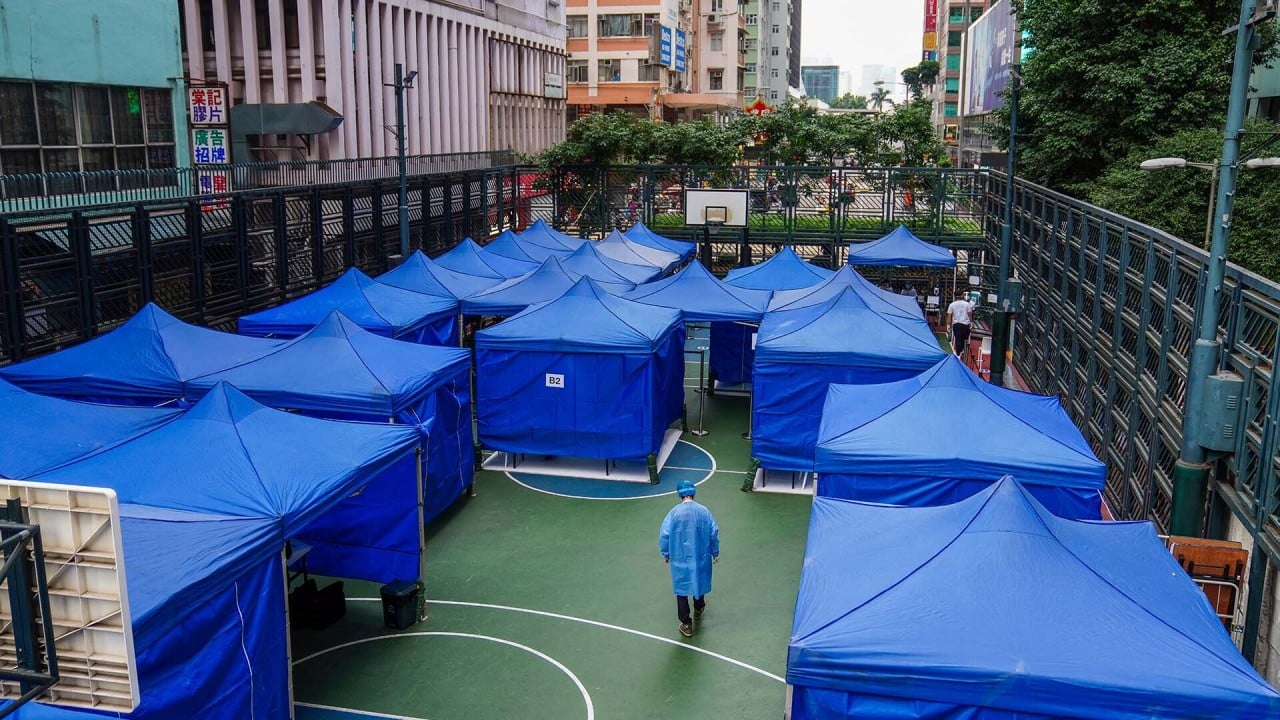
Hong Kong property market is on an upwards trajectory after faster-than-expected rebound in first quarter
- After ‘heated’ first quarter, sector heading for ‘season of trading’, industry insiders say
- Overall property transactions soared 79.2 per cent in the January to March period: Centaline
The Hong Kong property market rebounded faster than expected in the first quarter, despite rising unemployment and a historic economic contraction.
And brokers as well as developers alike expect the upwards trajectory to continue, as homebuyers plough profits made on a surging stock market into property. They said the buyers were keen to snap up bargains before the border with mainland China opens again, and prices start to rise.
“The seasonal boom [after] Lunar New Year appeared early this year,” said Wong Leung-sing, senior associate director of research at Centaline Property Agency. “Recently, turnover across different districts has stayed heated. It is possible that the number of overall transactions could reach a high level of 10,000 in April” alone, he added.
‘Front-loaded’ correction in Hong Kong offices to bottom out soon: Colliers
The rebound is significant because overall property transactions fell by 20.6 per cent from 26,475 in the second quarter of 2019, before Hong Kong’s protests and the outbreak of the coronavirus pandemic, to 21,026 in the fourth quarter last year.
Overall property transactions, including residential, commercial and industrial properties, and parking spaces, soared 79.2 per cent in the January to March period to 22,840 from 12,744 a year ago, according to Centaline. This number is the highest since the second quarter of 2019.
The number of homes changing hands also rose, jumping 77.7 per cent to 18,131 in the first quarter from 10,204 in the same period a year ago, Centaline data shows. This too is the highest since the second quarter of 2019, when 20,657 homes were sold.
The property agency’s price index for lived-in homes, the Centa-City Leading Index, edged up 0.5 per cent from late March to early April to a 36-week high of 181.3. The gauge is a better indicator of prices than the official index from Hong Kong’s Rating and Valuation Department, which is one month late. Centaline said it expected the index to climb continuously to a peak of 190 in mid-2021.
The second quarter is also shaping up to be a “season of active trading”, according to Derek Chan, head of research at Ricacorp Properties. The housing market “got rid of the pandemic in the first quarter and there was a revenge rebound”, he said.
“The second quarter has always been a season of active trading. Many buyers will speed up their entry into the market before the border is reopened in Hong Kong, which will stimulate a further increase in sales in the second quarter,” he said.
The reopening of the border between China and Hong Kong, as well as vaccinations, will boost the local economy, according to Sun Hung Kai Properties, Hong Kong’s biggest developer by market cap. Both the primary and secondary markets had high turnovers in the first quarter, reflecting strong user demand, said Victor Lui, deputy managing director at Sun Hung Kai. Lui said that in the second quarter, many new projects will be launched and the housing market will gradually become more active.
“The rebound is faster than expected owing to a quick vaccination response around the world,” said Tom Ko, executive director of capital markets at Cushman & Wakefield in Hong Kong. “It is all about demand vs supply. The sudden rise [in] transaction numbers may relate to the wealth effect from the stock market, and people are thinking about money depreciation in the long term owing to huge quantitative easing” attempts.
Hong Kong property start-ups seek funds, betting on post-Covid-19 recovery
Many people also had a “fear of missing out”, or social anxiety stemming from the belief that others might be having fun – in this case, buying a home – while the person experiencing the anxiety is not present, Ko added.
Homebuyers were worried that cheap listings will be gone soon, and that discounts offered for new projects will be reduced, said Vincent Cheung, managing director at Vincorn Consulting and Appraisal.
When asked why the city’s rising unemployment and record recession had not made a significant impact on the housing market, Charles Chan, managing director at Savills Valuation and Professional Services, said this was because the pandemic had hit the lower classes most over the past year, “but not the middle or upper class”.
Easter property sales fall flat in Hong Kong as buyers wait for new projects
“In fact, many people had [made] good gains from the volatile stock market since the outbreak [began],” Chan said. He added that some solicitors were accepting power of attorneys from buyers physically in mainland China to trade properties, which had also helped to increase the volume of transactions.
Hongkongers’ confidence in home prices was also recovering, according to the Hong Kong Research Association, which interviewed 1,078 respondents between late March and early this month. Responses to the February 2021 RICS-Spacious Hong Kong Residential Monitor also indicated that the housing market may have turned the page on its recent downturn, with prices seen rising for the first time in two years amid increasing demand.
“The increased optimism for the sales market appears to be linked to the improvement in Covid-19 in the city, as well as the limited capacity for new supply to hit the market. However, some respondents also highlighted the weak economic outlook and scarcity of government support in the recent budget as factors that could weigh on any market recovery,” the survey said.



